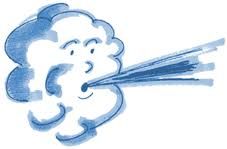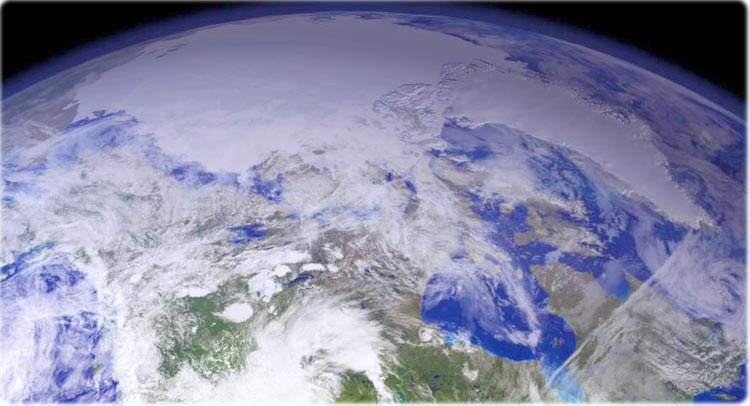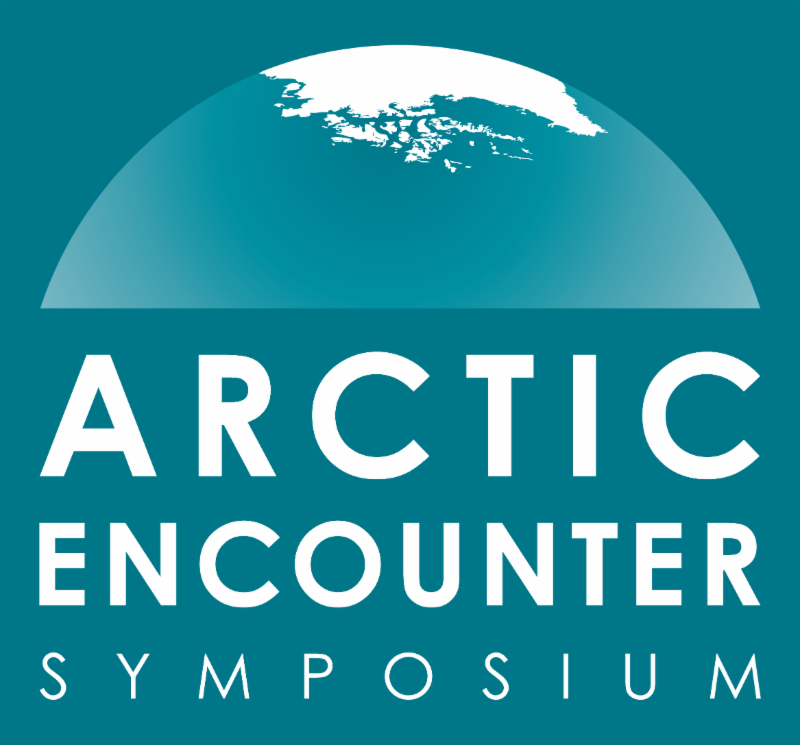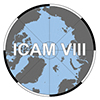|
|
|
|
|
|
|
|
No Arctic-science events are announced for today.
|
Media
When Whales and Humans Talk. Harry Brower Sr. was lying in a hospital bed in Anchorage, Alaska, close to death, when he was visited by a baby whale. Although Brower's body remained in Anchorage, the young bowhead took him more than 1,000 kilometers north to Barrow (now Utqiaġvik), where Brower's family lived. They traveled together through the town and past the indistinct edge where the tundra gives way to the Arctic Ocean. There, in the ice-blue underwater world, Brower saw Iñupiat hunters in a sealskin boat closing in on the calf's mother. Hakai Magazine
 Bomb Cyclones, Nor'Easters, and the Messy Relationship Between Weather and Climate. Bomb Cyclones, Nor'Easters, and the Messy Relationship Between Weather and Climate. After three frigid nor'easters in less than two weeks, even the most devout prophet of climate change could be forgiven for echoing the sentiment that President Trump tweeted a few months ago, to much ridicule, shortly before one of the coldest New Year's Eves on record: "Perhaps we could use a little bit of that good old Global Warming." By this point, most people outside the White House understand that climate is not the same as weather-that climate is the forest and weather is the trees. Yet the global climate system is enormously complex, and there is, in fact, a lively scientific debate in progress about the relationship between human-caused climate change (especially in the Arctic) and the increased frequency of extreme cold-weather events across the United States-blizzards, bomb cyclones, and the dreaded wintry mix. The New Yorker I nuit Men, Women Likely to Smoke For Different Reasons: StatCan. A new Statistics Canada study on Inuit Nunangat has found that there are gender-specific differences between Inuit men and Inuit women in the way that they smoke tobacco. If you are an Inuk man and a high-school graduate, you're less likely to be a smoker, and you have "significantly lower odds of smoking" if you live in a higher-income household. Nunatsiaq Online  Small Arctic Climate Changes Make Big Difference in Ecosystem: Study. Small Arctic Climate Changes Make Big Difference in Ecosystem: Study. Climate change could be altering northern ecosystems more quickly and profoundly than anyone surmised, suggests a study that focused on a large Arctic lake. "Everything is so intricately connected," said lead author Igor Lehnherr of the University of Toronto. "You warm the region and it has this domino effect on the entire watershed." National Observer
|
|
Future Events
48th International Arctic Workshop 2018, April 5-6, 2018 (Boulder, Colorado USA). Hosted by the Institute of Arctic and Alpine Research (INSTAAR), University of Colorado. The 2018 Arctic Workshop welcomes a community that includes all career stages - from student to distinguished world-class expert. The Arctic Workshop is open to all interested in high latitude environments, including those of the past, present, and future. Talks and posters on all aspects of Arctic science, social science, and engineering are invited, including Arctic and Antarctic climate, anthropology, atmospheric chemistry, engineering and infrastructure, environmental geochemistry, paleoenvironment, sociology, archeology, geomorphology, hydrology, glaciology, soils, ecology, oceanography, Quaternary history and more. If you are studying the Arctic, this is the conference for you.
Polar Day, April 6, 2018 (Davis, CA USA). This Polar Forum is supported by the John Muir Institute at University California Davis. Chair of the US Arctic Research Commission Fran Ulmer will discuss "The Rapidly Changing Arctic: Why Does it Matter?" Dr. Steven C. Amstrup will discuss "Current and Future Challenges Facing Polar Bears." There will be a screening of the documentary "Between Earth and Sky." Following the film there will be a panel Q&A with Fran Ulmer, Eric Post, Steven Amstrup and David Weindorf.
 5th Annual Arctic Encounter Symposium (AES), April 19-20, 2018 (Seattle, WA, USA) 5th Annual Arctic Encounter Symposium (AES), April 19-20, 2018 (Seattle, WA, USA) The Arctic Encounter, the largest annual Arctic policy conference in the U.S., will convene policymakers, industry leaders, scientists, Arctic artists and musical performers, and other stakeholders to debate and discuss emerging Arctic challenges and opportunities including policy, innovation, security, and development. The mission of AES is to raise awareness, engage challenges, and develop solutions for the future of the Arctic region and the people who live there. The 5th annual AES will take place in downtown Seattle at the Bell Harbor International Conference Center on Pier 66.
2018 North by North Festival, April 23-29, 2018 (Anchorage, Alaska USA). The North by North Festival captures the spirit of Alaska and the Arctic - to address our challenges and opportunities with Northern innovation and resilience, to build on a rich history and to ensure a future full of promise. The Festival is for the North, and organized by Northerners, with goals of sustainability, livability and growth. The Festival brings innovators from across Alaska, the nation and other Arctic regions to collaborate and address local and circumpolar challenges. Through knowledge, governance, business, design, film, music, food, literature and art, we celebrate the North.
** New this week ** 2018 Anchorage Arctic Research Day, April 26, 2018 (Anchorage, Alaska USA). This event is held in conjunction with the 2018 North by North Festival. It is organized by the Arctic Research Consortium of the US, the University of Alaska Anchorage, the Anchorage Museum, and the Institute of the North. This gathering will include participants from government, corporate, academic, not-for-profit, and Indigenous groups, and will feature oral panel discussions by leading researchers across the natural and social sciences, health, engineering, humanities, the arts, and governance. The day will also feature both formal and informal activities to encourage networking and robust roundtable discussions to encourage collaborations across the boundaries of discipline, organization, and sector.
Council on Earth Cryology, May 15-16, 2018 (Moscow, Russian Federation). Scientific council on Earth cryology of Russian Academy of Sciences together with Department of Geocryology of Faculty of Geology of Lomonosov Moscow State University, Institute of the Earth Cryosphere, the Tyumen Scientific Senter, Melnikov Permafrost Institute (Yakutsk) of the Siberian Branch of the Russian Academy of Science holds on May 15 - 16, 2018 an enlarged meeting with participation of the Russian and foreign scientists, engineers and experts: "Current problems of geocryology." The meeting of Scientific council on Earth Cryology of RAS has the status of the International meeting. The publication of materials in the collection of reports is planned. Submissions (Submission Form), offers on cooperation, support of a conference and papers (Sample of Paper) to e-mail: cryoconf18@gmail.com
- Addressing the energy field of the future;
- Defense energy systems in the North;
- Natural hazards and aerospace/defense;
- Empowering Alaska's entrepreneurs;
- Navigating the changing Arctic; and,
- Developing local and global energy solutions.
The Effects of Climate Change on the World's Oceans, June 4-8, 2018 (Washington, DC USA). The 4th International Symposium will bring together experts from around the world to better understand climate impacts on ocean ecosystems - and how to respond. The event is hosted by a variety of groups including International Council for the Exploration of the Sea (ICES), N. Pacific Marine Science Organization (PICES), Intergovernmental Oceanographic Commission of UNESCO (IOC), and Food and Agriculture Organization of the United Nations (FAO).
 POLAR 2018, June 15-27, 2018 (Davos, Switzerland). POLAR2018 is a joint event from the Scientific Committee on Antarctic Research (SCAR) and the International Arctic Science Committee (IASC). The SCAR meetings, the ASSW and the Open Science Conference will be hosted by the Swiss Federal Institute for Forest, Snow and Landscape Research WSL under the patronage of the Swiss Committee on Polar and High Altitude Research. The WSL Institute for Snow and Avalanche Research SLF is organizing POLAR2018. POLAR 2018, June 15-27, 2018 (Davos, Switzerland). POLAR2018 is a joint event from the Scientific Committee on Antarctic Research (SCAR) and the International Arctic Science Committee (IASC). The SCAR meetings, the ASSW and the Open Science Conference will be hosted by the Swiss Federal Institute for Forest, Snow and Landscape Research WSL under the patronage of the Swiss Committee on Polar and High Altitude Research. The WSL Institute for Snow and Avalanche Research SLF is organizing POLAR2018.
5th European Conference on Permafrost, June 23-July 1, 2018 (Chamonix-Mont Blanc, France). In the continuation of the International and Regional conferences convened by the International Permafrost Association, the 5th European Conference on Permafrost (EUCOP 2018) will be held in Chamonix-Mont Blanc, France, 23rd June - 1st July 2018. The conference aims at covering all relevant aspects of permafrost research, engineering and outreach on a global and regional level. Conference website: here.
Arctic Observing Summit 2018, June 24-26, 2018 (Davos, Switzerland). The Arctic Observing Summit (AOS) is a high-level biennial summit that provides a platform to address urgent and broadly recognized needs of Arctic observing across all components of the Arctic system. AOS 2018 will be held in Davos, Switzerland ( June 24-26) and will focus on pressing issues in the implementation and support of sustained observations that can be addressed through a business-case lens. To that end, short submissions are requested that address any and all aspects of the overarching theme and sub-themes. Additional information can be found here.
17th International Congress of Circumpolar Health (ICCH17), August 12-15, 2018 (Copenhagen, Denmark). The ICCH congresses are held every third year in different locations in the circumpolar area and represent the largest scientific meetings worldwide on circumpolar health. The ICCH congresses serve as the primary source of information exchange and scholarly communication in issues relating to circumpolar health. More than 750 participants generally register and participate in each Congress, and more than 400 scientific papers or posters are usually presented.
UArctic Congress 2018, September 3-7, 2018 (Oulu and Helsinki, Finland).
The UArctic Congress 2018 will bring together key UArctic meetings and a science conference into one single gathering, including business meetings of the Council of UArctic, Rectors' Forum, Student Forum, and Thematic Networks & UArctic Institutes Leadership Team. The Congress is an integral part of the Finland's Arctic Council chairmanship program, and open to the public. The event will highlight the themes and priorities of the Finnish chairmanship, including the goals of the United Nations' 2030 Agenda for Sustainable Development, and the Paris Agreement under the UN Framework Convention on Climate Change.
The second Arctic Biodiversity Congress is hosted by the Conservation of Arctic Flora and Fauna (CAFF), the biodiversity working group of the Arctic Council, and the Ministry of the Environment, Finland. The second Arctic Biodiversity Congress will build on the success of the first Congress, held in 2014 in Trondheim, Norway, and will bring together scientists, policymakers government officials, Indigenous representatives, Traditional Knowledge holders, industry, non-governmental organizations, and others to promote the conservation and sustainable use of Arctic biodiversity.
|
|

  
4350 N. Fairfax Drive, Suite 510
Arlington, VA 22203, USA
External links in this publication, and on the USARC's World Wide Web site ( www.arctic.gov) do not constitute endorsement by the US Arctic Research Commission of external Web sites or the information, products or services contained therein. For other than authorized activities, the USARC does not exercise any editorial control over the information you may find at these locations. These links are provided consistent with the stated purpose of this newsletter and the USARC Web site.
|
|
|
|
|
|
|
|
|
 Bomb Cyclones, Nor'Easters, and the Messy Relationship Between Weather and Climate. After three frigid nor'easters in less than two weeks, even the most devout prophet of climate change could be forgiven for echoing the sentiment that President Trump tweeted a few months ago, to much ridicule, shortly before one of the coldest New Year's Eves on record: "Perhaps we could use a little bit of that good old Global Warming." By this point, most people outside the White House understand that climate is not the same as weather-that climate is the forest and weather is the trees. Yet the global climate system is enormously complex, and there is, in fact, a lively scientific debate in progress about the relationship between human-caused climate change (especially in the Arctic) and the increased frequency of extreme cold-weather events across the United States-blizzards, bomb cyclones, and the dreaded wintry mix. The New Yorker
Bomb Cyclones, Nor'Easters, and the Messy Relationship Between Weather and Climate. After three frigid nor'easters in less than two weeks, even the most devout prophet of climate change could be forgiven for echoing the sentiment that President Trump tweeted a few months ago, to much ridicule, shortly before one of the coldest New Year's Eves on record: "Perhaps we could use a little bit of that good old Global Warming." By this point, most people outside the White House understand that climate is not the same as weather-that climate is the forest and weather is the trees. Yet the global climate system is enormously complex, and there is, in fact, a lively scientific debate in progress about the relationship between human-caused climate change (especially in the Arctic) and the increased frequency of extreme cold-weather events across the United States-blizzards, bomb cyclones, and the dreaded wintry mix. The New Yorker Small Arctic Climate Changes Make Big Difference in Ecosystem: Study. Climate change could be altering northern ecosystems more quickly and profoundly than anyone surmised, suggests a study that focused on a large Arctic lake. "Everything is so intricately connected," said lead author Igor Lehnherr of the University of Toronto. "You warm the region and it has this domino effect on the entire watershed." National Observer
Small Arctic Climate Changes Make Big Difference in Ecosystem: Study. Climate change could be altering northern ecosystems more quickly and profoundly than anyone surmised, suggests a study that focused on a large Arctic lake. "Everything is so intricately connected," said lead author Igor Lehnherr of the University of Toronto. "You warm the region and it has this domino effect on the entire watershed." National Observer



